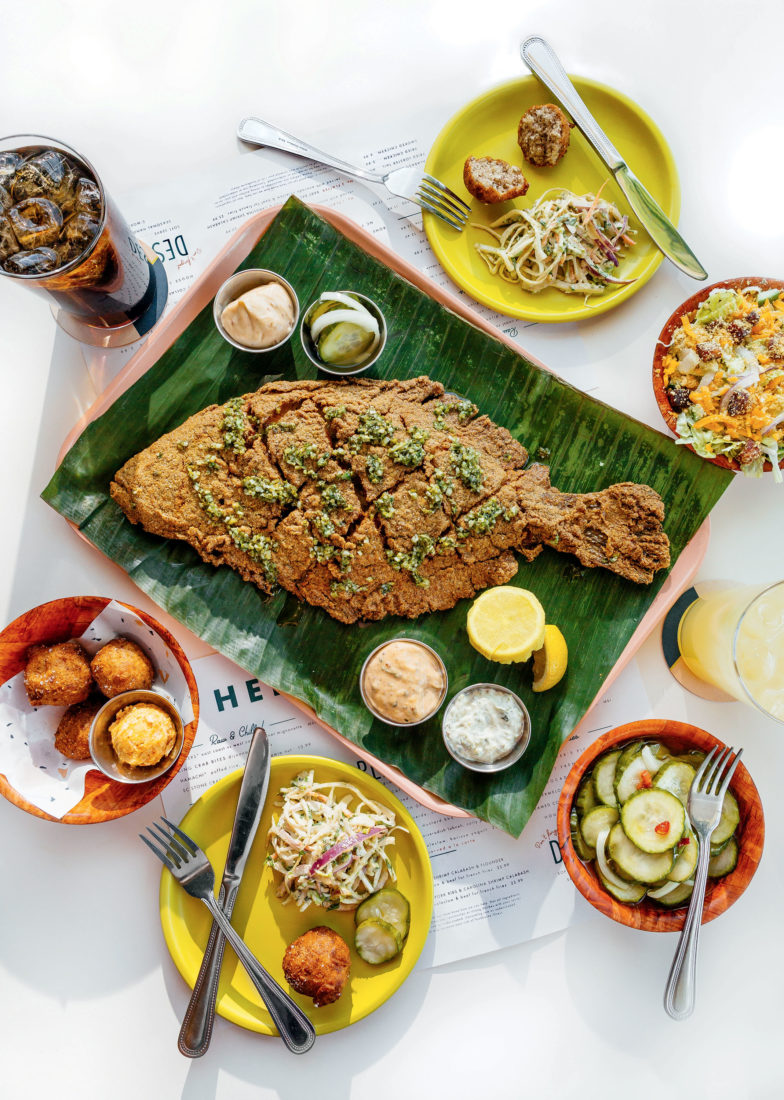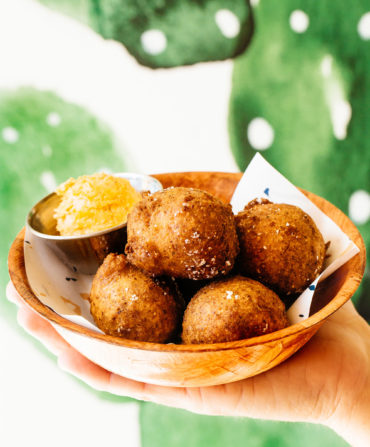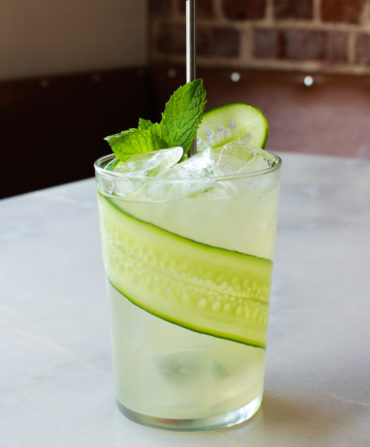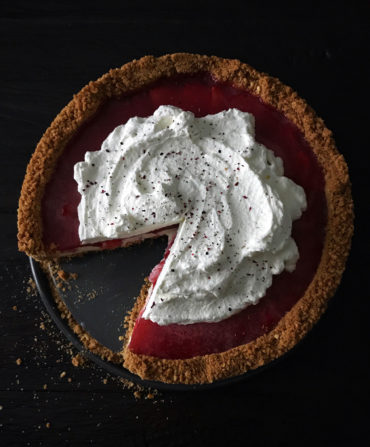I read menus like narratives. The interplay of ingredients and intents yields stories. Noting inspirations and place-names, I piece together tales before I take first bites. Proprietors Katy and Joe Kindred reward close readers of the Hello, Sailor menu with unexpected tastes and textures, and telling nouns and adjectives. Pureed avocados bind the slaw. Fernet, that bittersweet aperitif, punches up the oyster mignonette. Brown-butter-gilded saltines lend crunch and richness to a crab salad.
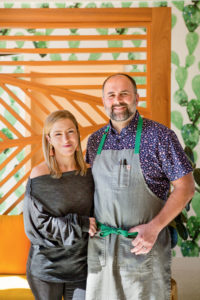
Photo: TIM ROBISON
Owners Katy and Joe Kindred.
Set on the fringe of Holiday Marina, north of Charlotte at Lake Norman, Hello, Sailor claims the same location, opposite a looming dry dock, once occupied by Harbor Lights, a fish-camp restaurant Joe frequented when he was growing up. As a boy, he fed carp at the gas dock and ate summer lunches of fried shrimp and white-bread-and-bologna sandwiches. At the Kindreds’ reimagined fish camp, open since December, the husband-and-wife team refracts that nostalgia through a midcentury-modern funhouse mirror. When Katy and Joe opened their first restaurant, Kindred, in 2015, they invigorated a Charlotte-area dining scene that some thought moribund. From a storefront in nearby Davidson, opposite the college of the same name, they made milk bread, baked into pull-apart corsages and scattered with sea salt. They twirled linguine with a ragout of eggplant and country ham. The Kindreds honed an aesthetic that straddled the Mediterranean and the American South and put that college town on the pilgrimage map for good eaters. Three years into their reign, Kindred remains, arguably, the best restaurant in Charlotte—and it isn’t even in Charlotte.

Tim Robinson
Hello, Sailor, their second restaurant, is what transpires when Joe, the chef, and Katy, the designer and sommelier, take the night off to gather on the dock and fry the daily catch. Craig Deihl, who made his name in Charleston, South Carolina, curing salumi and cooking modern Lowcountry dishes, serves as chef de cuisine. If you’re unfamiliar with what restaurant job titles convey, that means Joe conceived the menu and Deihl executes and interprets it. Judging by the two meals I ate in one mad day, he’s as talented with fish as he is with pork.
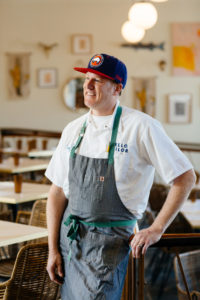
Chef Craig Deihl.
The look is Palm Springs, which the Kindreds visited to drink in inspiration. With a bit of Carolina mill-town fish camp tossed in. The facade, which resembles a ship’s prow, reminds me of those clubhouses that anchored swinging seventies apartment complexes. Midcentury flourishes are everywhere: Four leather butterfly chairs face an orb-shaped chartreuse-colored ceramic fireplace. Tucked in a corner, opposite the Sputnik-chandelier-lit bar, a vintage photo booth spits out five-buck four-strips.
Maritime glosses shine, too: Surfing videos flicker on the flat screen. The merch area, alongside the hostess stand, vends beer cozies, cheap sunglasses, and cropped T-shirts. Out back, on a deck that overlooks a marina packed with party barges, stands a thatched tiki bar and a platoon of hightop tables that stretch toward the horizon.
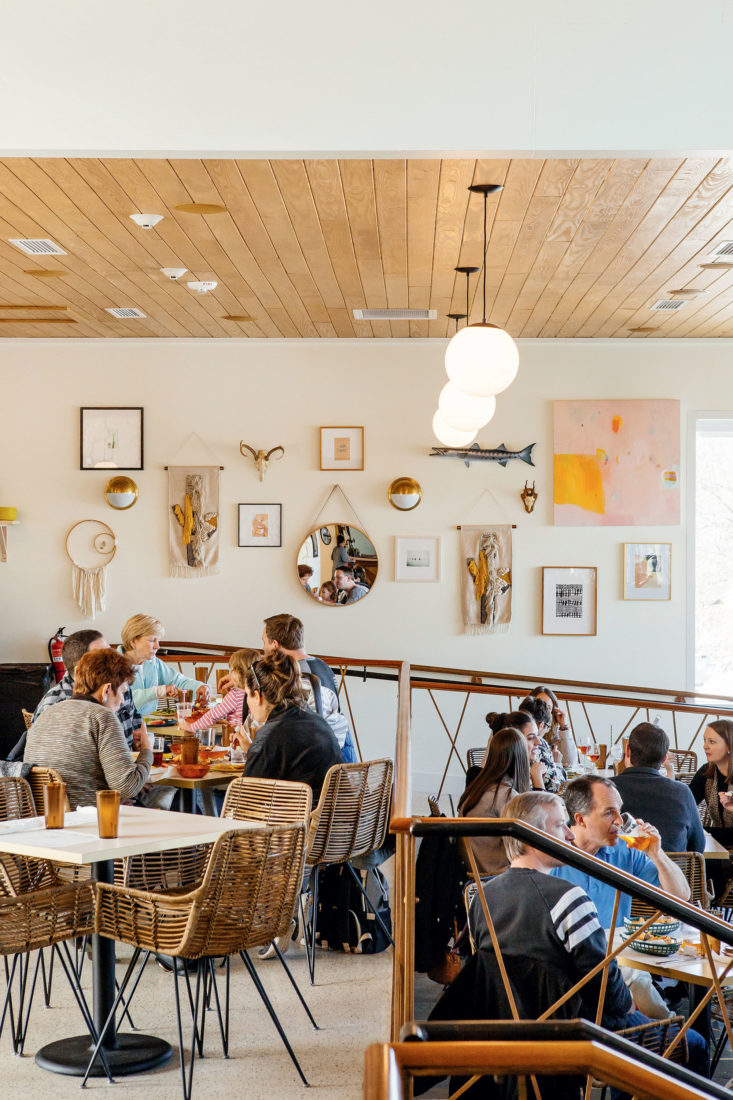
Photo: TIM ROBISON
The laid- back dining room.
Lake Norman is a bold place to do this. Traditional fish camps, which opened on Thursdays when mill workers got paid, have long been treasured hereabouts. They were destination restaurants, serving coastal specialties far from the coast. By opening a postmodern version in the heart of fish-camp country, the Kindreds invited the sort of critique that begins: Why would I pay ten dollars more for that, when the place up the road, the one my daddy always liked, serves the same dish?
The answer comes as you eat your way through the menu. Yes, the catfish here evokes Stowe’s fish camp, the late and beloved joint on the nearby Catawba River. But the Hello, Sailor version also recalls, in purity and restraint, the salt and pepper flounder served at Cantonese restaurants. The gribiche, a traditional French sauce, will remind you of how goopy and cloying most tartar sauces are. And the hush puppies taste like deep-fried soufflés of Jimmy Red corn, butter, and salt. (I rarely trot out superlatives, but these pups, served with yuzu kosho–honey butter, are the best I’ve ever eaten.)
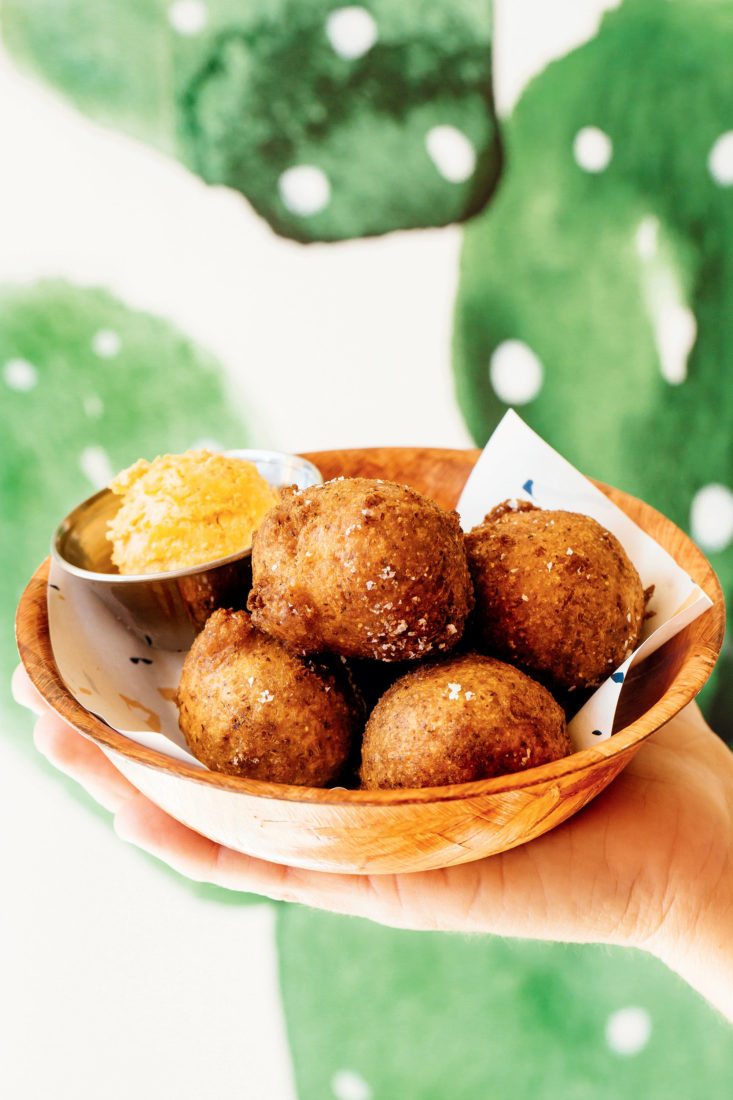
Photo: TIM ROBISON
The Hello, Sailor hush puppies, served with a side of honey butter. Get the recipe here.
The Kindreds reference twenty-first-century foodways, too. Whole flounder, fried in fresh-ground masa and sauced with a bright and vinegary mojo verde, rings out like an homage to Nereyda Mali and her colleagues at Tacos El Nevado, Charlotte’s standard-bearer taqueria. Watermelon sprinkled with chile reflects that same Mexican American palate. Hello also broadcasts a beautifully insurgent sense of humor. Order a dozen oysters, served with that Fernet mignonette, and you get a tray, loaded with seaweed and ice, tagged with West Coast and East Coast markers. A sketch of rapper Biggie Smalls reps Harkers Island beauties from the East, while his West Coast rival Tupac Shakur adorns the Kumamotos.
At Hello, the Kindreds take the fishhouse form we know and love. And they honor it and reinvent it and pull up just shy of subverting it. You know the dishes. But you don’t know them done this way: Twice-fried hunks of sunchoke look and taste like potato chips that went feral in the woods. Craggy and chewy and specked with black caviar, the dish resembles a topographical diorama of a rugged mountain range. Tucked in a nub of that ubiquitous milk bread, their lobster roll reminds me of the time I hung out with the Kentucky farmer and writer Wendell Berry and discovered that he drank Scotch: Local-only edicts get boring.
Boredom never creeps in here. Take the king crab. Deihl broils the spindly legs with ghee. Another menu would reference clarified butter. But ghee sounds distinctive. It also reads as worldly. That’s the narrative this menu communicates: We’re from here, Hello, Sailor says. We’ve also traveled widely and eaten broadly, and we think local and global play well together.


